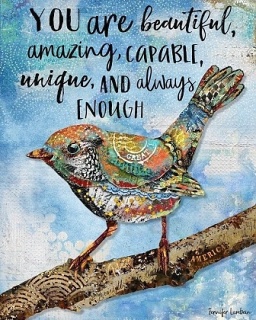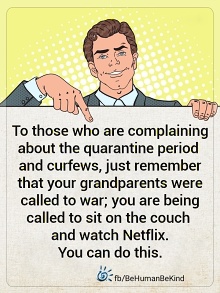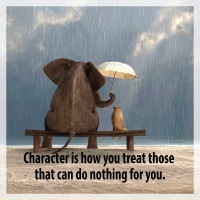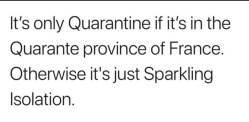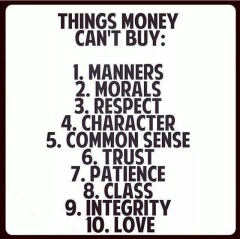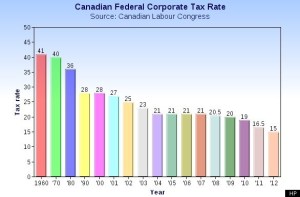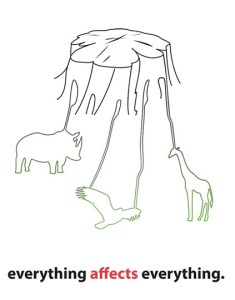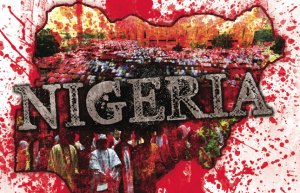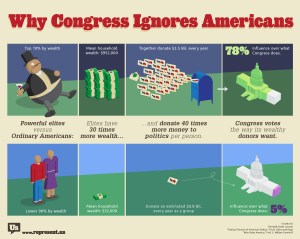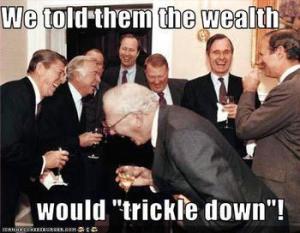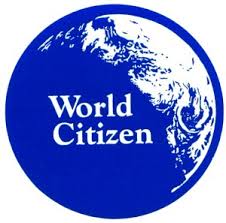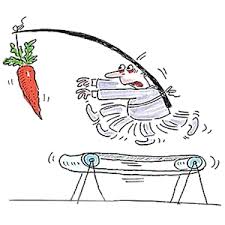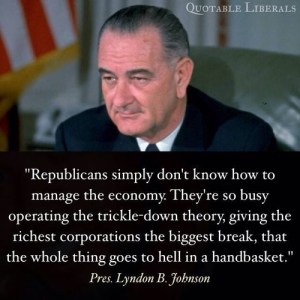by Roxanne Tellier
My husband’s grandmother was a darling. She looked like Mrs. Claus, and she had a formidable appetite for hard work and spotless homes. For her, there was no greater joy in life than family, and service – first to the family, then to others. Whenever she’d see her children, grandchildren, or their partners, she took great interest in how they were faring, particularly in how they earned their daily bread.
“How are you! Are you … working!” she’d half-whisper, and you knew that the answer should never be “No.” To work was to be useful; to work was to be a gift, not a burden.
As a young woman, she’d immigrated from Finland, unable to speak a word of English, with little education, but with a good attitude, willing hands, and a strong back. She made a good life here, raising a family, and never shirking duty. Work defined her life – past, present and future. She worked deep into her eighties, helping to care for other senior women, most of whom outweighed her by a factor of at least three.
She, like so many of our forebears, packed her Bible in her luggage when she immigrated, along with that Protestant work ethic/pre-Reformation Catholic spirit, that tied so nearly into the essence of capitalism, and the development of the New World. The core of those theological philosophies revolved around the idea that hard labour, being a ‘calling’ from God, was in fact a noble vocation, fulfilled through dedication to the work, no matter how humble.
This work ethic reshaped the very idea of ‘work’ in any form as a duty and an obligation to consistently work towards the manifestation of grace in one’s life. Work was the means by which one became a blessing to others. The gathering of riches through hard work and frugality was a sign that the worker had pleased their God. And in time, the people around them became attracted to those qualities, and to strive to be like those burghers.
These concepts – one theological, one economical – are often credited with helping to define our North American societies, as well as those of most of Europe. And it could be argued that the combination of these two concepts is what has led to today’s deification of the rich and powerful, as beacons of what can be achieved by the lowliest of the low, if they could just get themselves right with some magical god that bestows bounty on his best beloveds.
The mindset of the Calvinist Protestant work ethic was largely responsible for Western Europe’s 16th century transition from feudalism to capitalism. With the flight of settlers to the New World, the ethic flourished. The poor needed to work; the rich needed hard workers.
The enmeshing of religion and economic progress is so deep-rooted that it is now an inherent characteristic of American values. Its principles are so deeply embedded that some venal Christian churches preach the ‘prosperity gospel’ as a way to enrich their parishioners, and of course, enrich themselves, all in the name of The Lord.
Politicians wishing to cater to that mindset love to deny the humanity of anyone not deemed to be ‘working hard enough.” If you’re homeless it’s your fault, pick yourself up by your bootstraps. If you’re sick, suck it up, and get back to work. It’s the world of quid pro quo – an exchange of goods and/or services. Something for something.
“if you would just work a little harder.” Happiness and worthiness, we’re told, is always just out of reach, but attainable.
As a rule, the average North America is defined by their position in life, and their net worth. Our meeting and mating rituals start with “what do you DO? What’s your job?” and for many, that’s the only question and answer that matters.
The other day I heard someone describe another person simply by one attribute; wealth. What goes through your mind when you hear someone being described as ‘rich’? With just that qualifier, do you make any immediate assumptions about the character of the rich person? Do you jump to the conclusions that this person must be ‘good/smart/accomplished/worthy’ or ‘kind/trustworthy/fair’ because the possession of wealth is entangled in your mind with the possession of exquisite character?
It’s lovely if you can claim the title of rich and powerful, but for the rest of us peons, the internalization of what it is necessary to do or to own in order to be someone worthy of being admired or loved can rip our sense of self to shreds.
Remember that SNL skit, about the snarky receptionist (played by David Spade) who made all of his boss’ visitors fight to be seen as worthy of entering the office of the Mighty?
That’s how a lot of people struggling with a lack of confidence feel every day – unworthy. Incapable. Not enough. That mentality of feeling can steal away all your hopes and dreams, cripple your ambitions, put a stake through a relationship’s heart, and lead to a life of unhappiness and poor health.
Any number of factors can make people feel that way, though it can usually be traced to earlier times in our lives when we were made to feel unwanted and useless. Those early messages created pathways in our thinking that can lead to a need to prove oneself, over and over, as being worthy of the attention of those we love, admire, or respect.
In a sort of self-bullying, some can begin to feel like everyone else knows what’s going on, and how to do things perfectly, while they themselves don’t even know where to begin.
If everyone around you values a respectable job or a big bank account over the attributes you bring to the table, it can be hard to feel you deserve a seat there.
We learn not to play with fire when we’ve been burned. The pain of rejection will wear a soul out. Just enough of a struggle to find our place will invigorate us, and lead to a healthy self-image. But if there are too many rebuffs, too many unbeatable challenges, a sense of demoralization can set in, leaving us not in the mood to try again.

There’s a bright side, though. Experts say that it’s possible to free ourselves from thinking that we’re not enough, no matter how deeply rooted those feelings may be. It all begins with challenging the not-enough mindset, with doing what it is that makes you – not other people – feel happy.
It’s important to be able to see our inherent self-worth, not in terms of self-importance, but in the spirit of knowing our value, and the stance that we’ll always tackle problems to our very best ability.
“You are enough.” As complex, as difficult, as flawed and as perfect as you are, you are exactly who you are supposed to be. For all your qualities, good and bad, you are normal, and you don’t need anything more to be appreciated as the valuable, one-of-a-kind, worthy person that you already are.
And ‘being enough’ means being able to share that same feeling of belonging with all of those that you meet, live, and work with. It’s not about the job one holds, or the political or financial place they fill in the world, but about what makes that person unique. And enough.




